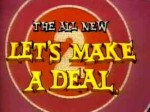The Very Serious People Still Want That Grand Bargain And Don’t Care What It Does To The Economy — Or Us
enlarge Let’s tell the emperor he has no clothes: Cutting spending during a prolonged recession is about as likely to reduce the long-term deficit as rubbing your lucky rabbit’s foot. This is disaster capitalism, plain and simple: Even as President Obama and congressional leaders focus on a fallback plan to lift the nation’s debt ceiling, top Democrats and Republicans have begun to map a new way to craft the same sort of ambitious deficit-cutting plan they abandoned last week. As part of the deal being discussed to raise the debt ceiling, leaders on Capitol Hill are forming an especially powerful congressional committee that would be charged with drawing up a new “grand bargain,” possibly by the end of the year. Key elements for a big deal remain in place. Obama has been clear that he wants one and has started making the case to skeptical factions of his own party that getting the nation’s fiscal house in order is in their best interest. House Speaker John A. Boehner (R-Ohio) also remains committed to an ambitious plan, having told his troops that he didn’t become speaker to do small things. And, perhaps most critically, the markets are demanding it. The credit rating agency Standard & Poor’s says Washington must agree to reduce the debt by $4 trillion over 10 years to avert a downgrade. “We cannot as a country fail to deal with the debt threat,” said Senate Budget Committee Chairman Kent Conrad (D-N.D.), one of the bipartisan “Gang of Six” senators who tried to reach an agreement in recent months. “Every serious economic analysis tells us we’ve reached the danger zone . And just kicking the can down the road? That can’t be. We’re better than that. We’ve got to be better than that.” Kent Conrad is out-and-out lying. The vast majority of reputable economists say cutting spending during a deep and prolonged recession is a really bad idea. That’s why Paul Krugman (you remember him – a Nobel Prize-winning economist, has a beard…) is incredibly frustrated at the craziness. He writes: As Brad DeLong argues , there’s a very good case to be made that we’re currently living under conditions in which fiscal contraction actually worsens the long-run deficit . Why? The argument runs like this: 1. Fiscal contraction reduces output in the short run; this immediately means that part of the initial gain in terms of a lower deficit is offset by reduced revenue and higher safety-net spending . These effects are especially large when you’re in a liquidity trap, so monetary policy can’t fight the fiscal contraction. 2. Reductions in short-run output and employment take a toll on long-run growth, too: capital investment is depressed, workers lose their skills, and so on. This in turn reduces future revenues . 3. Meanwhile, with real interest rates very low — actually negative on 5-year bonds — the cost of borrowing now in terms of future debt burden is also very low. So there is no plausible argument on behalf of the claim that fiscal contraction expands output; there is, on the other hand, a very plausible argument to the effect that fiscal contraction doesn’t even help the fiscal situation . So guess which perversity is considered a suitable position for Serious People, and which isn’t?

See original here:
